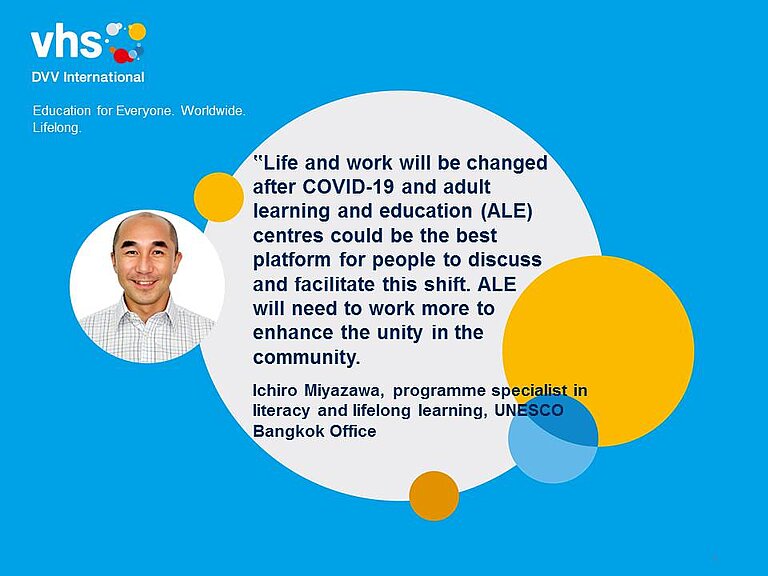Even in times of COVID-19, you cannot wash your hands of ALE … but it can provide space for reflection
DVV International has asked experts, practitioners and opinion leaders from different regions of the world how they assess the position and task of Adult Learning and Education (ALE) during and after the Corona crisis.
The answers from the Global South, especially, show how the pandemic deepens the division of society into rich and poor. This concerns not only access to health services, but also to education – both formal and non-formal. For example, Rajesh Tandon describes that in India even access to reliable information about the pandemic depends on economic status. Archana Dwivedi laments that women and girls in particular are the losers in the crisis. They not only bear the main burden of the crisis, but also run the risk of losing hard-won rights.
In view of the failure of public services and information policy in Great Britain, Alan Tuckett notices a wave of social solidarity and the need to deal with scientific knowledge. He considers both to be important links to ALE. Ichiro Miyazawa reacts in a similar way, arguing that ALE has a major role to play in accompanying the digitisation of society on the one hand, and on the other emphasising the need to develop ALE centres into information hubs at local level, not only for education but also for networking and exchange. Roong-Aroon Omas from Thailand combines this idea with the use of the concept of “learning cities” where ALE with its flexibility can play an important role.
Timothy Ireland from Brazil and Zahi Azar from Lebanon go one step further, taking the crisis as an opportunity to reflect on necessary system transformations. For them, ALE’s task is to provide spaces and occasions that encourage people to reflect and think further in order to understand the upcoming changes (for example in the context of climate change) and develop new opportunities. Giovanna Modé and Adelaida Entenza of the Latin American education campaign CLADE propose to revive the Latin American traditions of popular education for these tasks. In this context, Lene Rachel Andersen from Denmark complains about a lack of vision and courage in ALE institutions and urges a more critical approach to government action.
All respondents agree that the world after the crisis will not be the same as before – for ALE as well. It is essential to actively shape the necessary change, which Rajesh Tandon describes with five key phrases: rebuilding communities, education for all, reimagining the new normal, technology support for human interaction and investing in the local.











